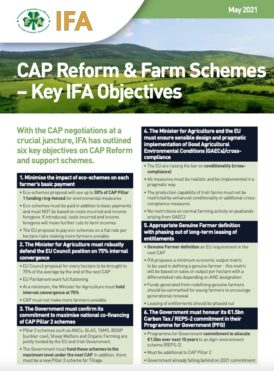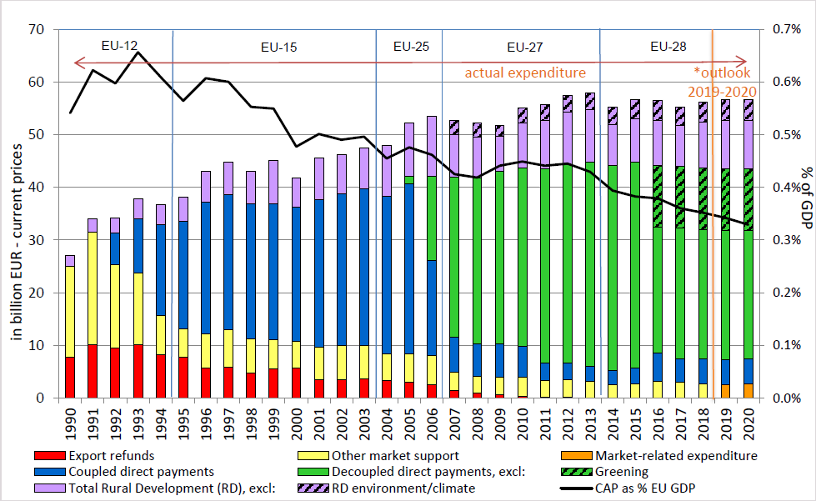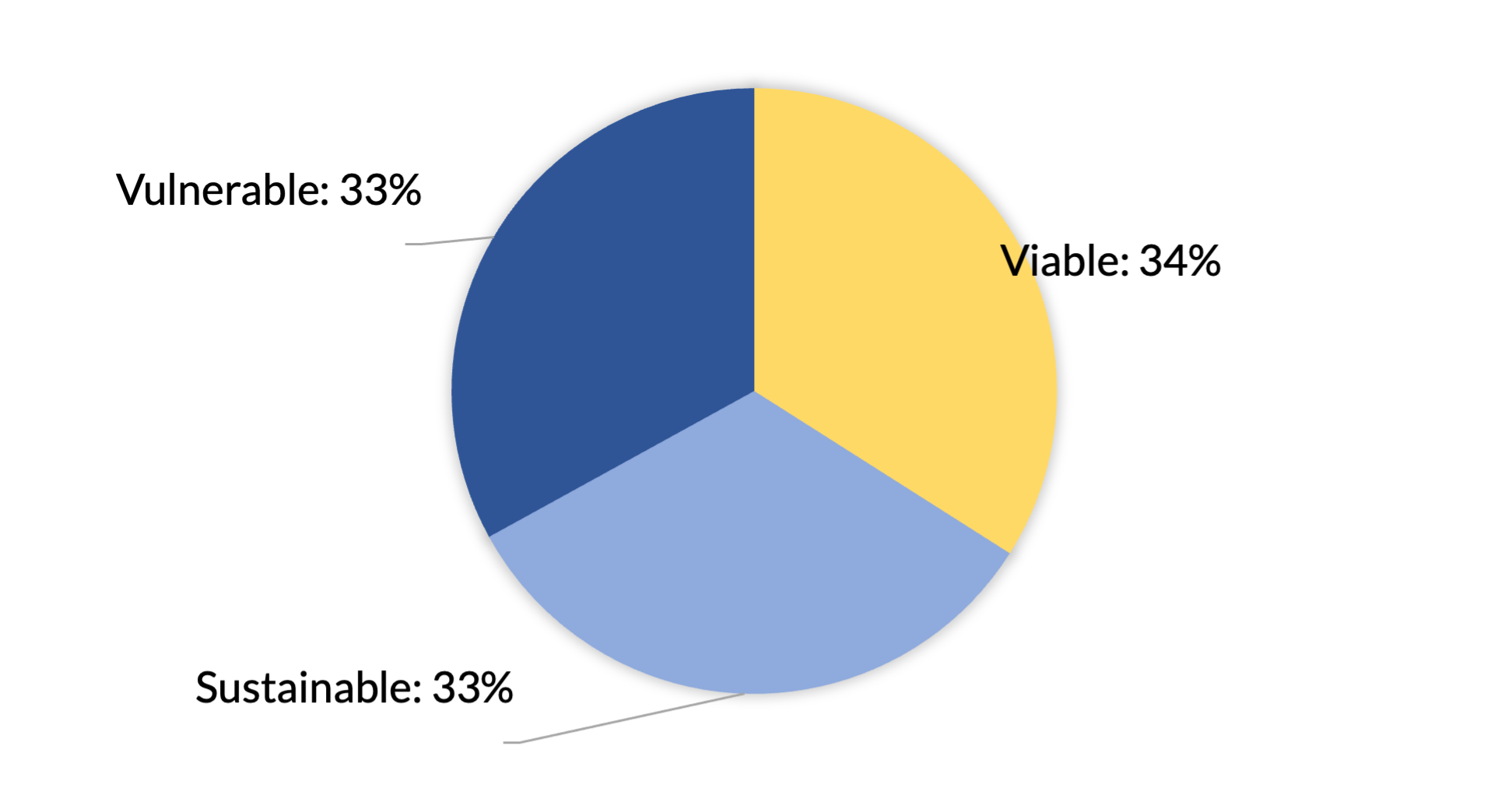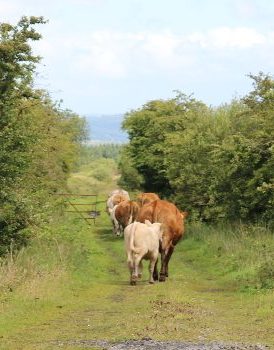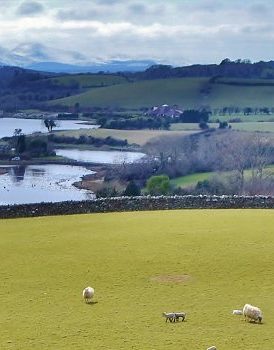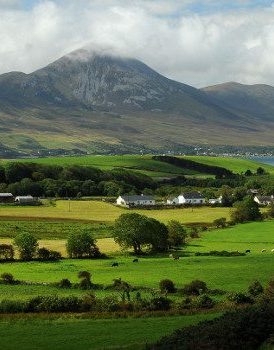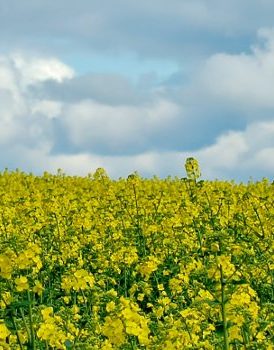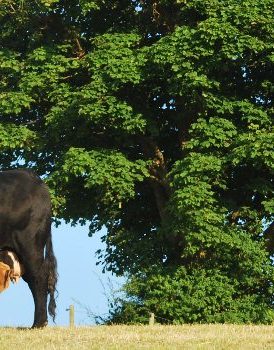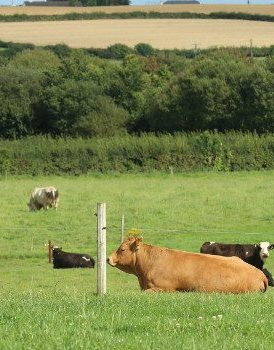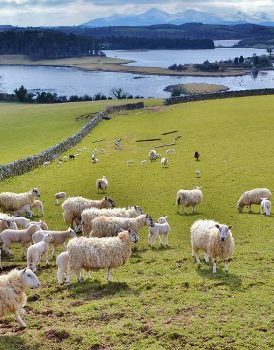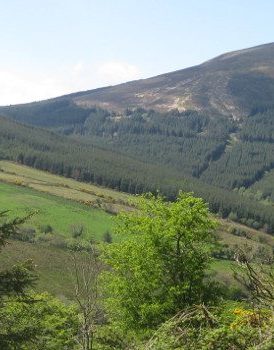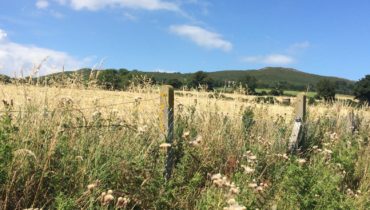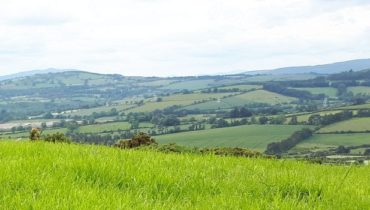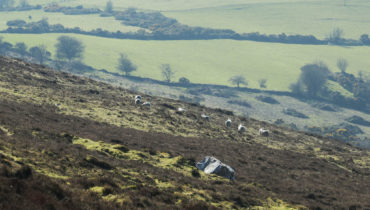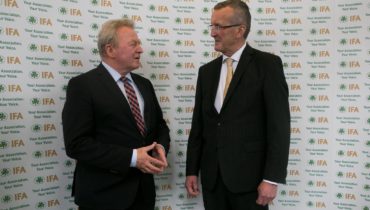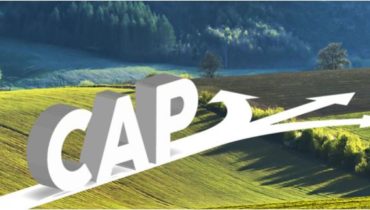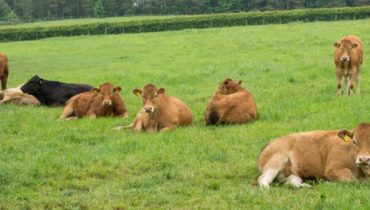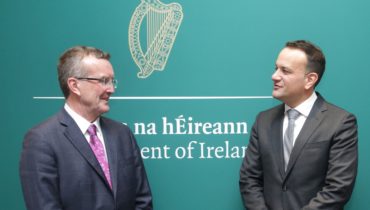CAP 2023

CAP Reform & Farm Schemes – Key IFA Objectives
With the CAP negotiations at a crucial juncture, IFA’s has outlined seven key objectives on CAP Reform and support schemes.
- Minimise the impact of eco-schemes on each farmer’s basic payment
- The Minister for Agriculture must robustly defend the EU Council position on 75% internal convergence
- The Government must confirm its commitment to maximise national co-financing of CAP Pillar 2 schemes
- The Minister for Agriculture and the EU must ensure sensible design and pragmatic implementation of Good Agricultural Environmental Conditions (GAECs)/cross-compliance
- Appropriate Genuine Farmer definition with phasing out of long-term leasing of entitlements
- The Government must honour its €1.5bn Carbon Tax / REPS-2 commitment in their Programme for Government (PFG)
Additionally CAP Reform must not make more farmers unviable.
CAP Reform Overview
The original purpose of the Common Agricultural Policy was to support farmers to produce food. However, the policy has become a diminishing part of the EU budget, while trying to achieve more objectives.
Figure 1 highlights the reduction in the CAP as a percentage of the overall EU budget. The requirements placed on farmers in order to be eligible for payments have been increasing. This is contributing to the price-cost squeeze on farmers. CAP funding is divided between Pillar 1 which includes the Basic Payment Scheme and Pillar 2 which funds schemes such as ANCs, GLAS, TAMS, BDGP, Sheep Welfare Scheme and Organic Farming Scheme.
The policy has evolved from market supports to direct payments per unit of output (coupled), to direct payments per hectare. In the last CAP programme, 30% of Pillar 1 payments were for greening measures and paid as a percentage of each farmer’s per hectare entitlement. The reality is that the link between production and supports is now almost completely broken.
These proposals will see up to 30% of Pillar 1 payments allocated to ‘eco-schemes’ with farmers now required to carry out additional environmental actions in order to receive a substantial portion of what is their basic payment under the current programme. To further compound matters, there is a substantial risk that farmers with higher per hectare entitlements will face a cut in their Pillar 1 basic payment, even if they fully participate in eco-schemes. This will occur should eco-scheme payments be made on a flat-rate basis per hectare, rather than being paid as a percentage of each farmer’s entitlement per hectare.
The current CAP programme, which commenced in 2015 was due to finish in 2020 but has been extended to 2022 under transition arrangements. A new CAP programme is currently under negotiation in a ‘trilogue’ process between the European Commission, the European Council of Agricultural Ministers, and the European Parliament. In tandem with these negotiations, the Department of Agriculture is currently devising a CAP National Strategic Plan for submission to the European Commission. This plan must be submitted by the end of 2021 and must set out, in full detail, how the new CAP programme will be implemented in Ireland.
Message from IFA President, Tim Cullinan
Irish farmers are going to have their incomes devastated by the latest CAP reform proposals. The introduction of the new so called ‘eco-schemes’ will take between 20 and 30% out of every farmer’s Basic Payment. Furthermore, the impact of additional convergence will make more farmers unviable.

The criteria farmers have to meet to be eligible for eco-schemes must be practical to encourage the maximum number of farmers to participate. The schemes must be designed to reward farmers who are actively farming their land for environmental actions and cannot be based on the ‘income foregone/costs incurred’ model as this would devastate farm incomes.
The current intention of the EU is to pay the schemes as a flat rate per hectare. There needs to be flexibility on this so that each farmer can at least get the same amount of money back as they had taken off them to fund the schemes.
The Government, the Minister for Agriculture and Ireland’s EU Commissioner must act now to protect farmers by securing maximum flexibility in the next CAP programme. The Irish Government must confirm they will provide maximum co-financing to ensure that Pillar 2 schemes such as Areas of Natural Constraints (ANCs), Green Low-Carbon Agri-Environmental Scheme (GLAS), Targeted Agricultural Modernisation Scheme (TAMS), Beef Data and Genomics Programme (BDGP – suckler cows), the Sheep Welfare Scheme and Organic Farming Scheme are properly funded. This commitment is vital to deliver €300/suckler cow and €30/ewe in targeted payments. In addition, we need a new scheme for Tillage farmers to stop the exodus from this sector.
Separate to the CAP, the Government gave a clear commitment in their Programme for Government (PFG) to ring-fence €1.5bn of carbon tax receipts, over the next ten years for an agri-environment scheme referred to as ‘REPS-2’. This commitment must be honoured in full and it must be in addition to the CAP Pillar 2 schemes.
The Department of Agriculture should explore a minimum output per hectare metric when defining a genuine farmer. In addition, IFA proposes the long-term leasing of entitlements are phased out. With the CAP budget being continuously eroded we must focus the payments to support genuine farmers. Encouraging the next generation into farming is also a key concern of IFA – accordingly, it is proposed that any money generated from redefining genuine farmers is used to encourage generational renewal.
IFA has highlighted concerns over new definitions of Good Agricultural and Environmental Conditions (GAECs) rules which prescribe cross-compliance measures for farmers. These must be realistic in design and pragmatic in implementation. The proposal to make special reference to peat soils under GAEC 2 is of concern. Under no circumstances can a farmer’s ability to actively farm land classified as peatlands or wetlands be negatively impacted.
While we all know that more needs to be done on the environment, there is insufficient account being taken of the viability of primary producers. The EU is taking food production for granted by destroying the viability of many family farms. The value of farm payments has been continuously eroded by inflation and the various reforms over the years. Many farmers are now at a tipping point. With less than 6% of farmers under 35 years of age and many farmers struggling for a successor the direction of travel of this reform has focused on environmental sustainability with little or no consideration for the economic or social consequences for rural areas. Our Government, Minister for Agriculture, and EU Commissioner must act now to protect Irish farmers and rural Ireland. Here
we set out six objectives which must be pursued urgently.
IFA Proposals
Objective 1: Minimise the impact of eco-schemes on each farmer’s basic payment
- The EU Commission has proposed that a minimum of 20% Pillar 1 payments go to eco-schemes while the European Parliament has proposed 30%. The EU is also proposing that eco-schemes be paid as a flat-rate payment per hectare and there is a risk that eco-schemes measures will be based on ‘cost incurred/income foregone’ basis which effectively eliminate the value of the eco-scheme payments to the farmer.
- IFA is extremely concerned about the impact of these proposed eco-schemes on farm incomes. Accordingly, the Minister for Agriculture must ensure that the minimum possible deduction is made from Pillar 1 for these schemes.
- The Minister must also strongly support the EU Council proposal to allow Member States who have a high level of environmental schemes as part of Pillar 2, to reduce the percentage allocated to eco-schemes under Pillar 1.
- Irish farmers already have very strong credentials on agri-environmental measures. 33% of Ireland’s land is farmed under Agri- Environmental Climate Measures compared with an average of 13.4% across the EU-27 member states. More acknowledgement should be given of the level of actions undertaken by Irish farmers to date.
- Active farmers whose businesses are more impacted by eco-schemes participation should be rewarded with higher eco-schemes payments. This approach will maximise the number of farmers who participate in eco-schemes. At an absolute minimum, each active farmer must have the opportunity to get back what is being deducted from them for eco-schemes.
Objective 2: The Minister for Agriculture must robustly defend the EU Council position on 75% internal convergence
- Convergence was introduced as part of the 2013 CAP Reforms with the objective of flattening per hectare payments across each Member State in the EU. Under the last set of reforms, Ireland undertook partial convergence bringing each farmer’s per hectare payment up to at least 60% of the national average.
- The European Commission and the EU Council of Agriculture Ministers have proposed 75% internal convergence to be achieved by the end of the next programme, while the European Parliament has sought 100% convergence. More recently, the Portuguese Presidency proposed 85% convergence in an effort to reach an agreement.
- In the context of the potential additional flattening effect of eco-schemes, it is vital that the Minister for Agriculture ensures that the European Council position of maximum 75% convergence is robustly defended.
Objective 3: The Government must confirm its commitment to maximise national co-financing of CAP Pillar 2 schemes
- In 2020, the national exchequer contributed over €280m in funding to co-finance Pillar 2 CAP schemes. These included Areas of Natural Constraints (ANC), Green Low-Carbon Agri-Environment Scheme (GLAS), Beef Data and Genomics Programme (BDGP), Targeted Agricultural Modernisation Scheme (TAMS), Sheep Welfare scheme and Organic Farming scheme. These schemes are a vital support for our vulnerable sectors. Current proposals all point to an increased level of national co-financing under the next CAP programme.
- IFA is targeting a combined suckler cow payment of €300/cow, ewe payment of €30/ewe and a new tillage sector scheme as part of next CAP programme.
- The Government’s commitment to maximise Pillar 2 co-financing under the next CAP must be delivered on. Funds from Carbon Tax receipts, already committed for the agri-environmental scheme under the Programme for Government cannot be raided to meet any co-financing commitments. In addition, schemes currently funded by the national exchequer must continue to remain separate from co-financed schemes. For example, The Beef Sector Efficiency Pilot (BEEP) scheme is currently funded by the national exchequer and must remain separate from the co-financed Beef Data and Genomics Programme (BDGP).
Objective 4: The Minister for Agriculture and the EU must ensure sensible design and pragmatic implementation of Good Agricultural Environmental Conditions (GAECs)/cross-compliance
- Proposals for the next CAP programme include revised definitions of GAECs. GAECs, commonly known as cross-compliance, are standards that all farmers must adhere to in order to receive CAP funding. The revised GAECs cover a number of different areas related to farming practices, including the protection of peatlands/wetlands, imposition of buffer strips, and minimum amount of land designated to non-productive areas.
- The Department of Agriculture must adopt a flexible and facilitative approach when implementing GAECs at a national level. This approach must minimise the impact of GAECs on farmers and their farm businesses.
- Of particular concern is GAEC 2, which relates to the protection of peatlands and wetlands. Peatlands and wetlands currently make up a substantial amount of Ireland’s land area with peatlands alone accounting for c.21%. Much of this land is under agricultural use with an estimated 300,000 acres of permanent grassland on drained, carbon-rich soils.
- Regulations on the appropriate wetland and peatland protection will potentially prove a major issue in Ireland where a large share of this land is under agricultural use. The economic importance of agricultural activity for rural areas with high levels of wetland and peatland cannot be ignored. Any changes in GAECs must not undermine the economic agricultural activity taking place on these soils.
- The high level of peatland and wetland soils in Ireland underlines the need for flexibility to be given to Member States within the next CAP programme, to address this issue in a sensible and appropriate fashion.
Objective 5: Appropriate Genuine Farmer definition with phasing out of long-term leasing of entitlements
- The next CAP programme will include a requirement for all member states to have a genuine farmer definition. This definition must ensure CAP payments are made to farmers who are actively farming.
- IFA proposes a minimum economic output metric to be used in defining a genuine farmer. This metric will be based on sales or output per hectare with a differentiated rate depending on Areas of Natural Constraint (ANC) designation.
- In order to help encourage more young farmers into the industry it is proposed to use any money generated from redefining the genuine farmer for generational renewal initiatives.
- IFA also proposes a reform of regulations governing the leasing of entitlements which would include the phasing out of long- term entitlement leasing. It is proposed the revised regulations will take account of exceptional cases such as family ill-health or bereavement where leasing of entitlements will still be permitted.
Objective 6: TheGovernment must honour its €1.5bn Carbon Tax / REPS-2 commitment in their Programme for Government (PFG).
- The 2020 Programme for Government (PFG) gave a commitment to provide €1.5bn in funding to a “REPS-2” agri- environmental scheme over the 2021-2030 period. The PFG also outlined that funding for this would be from Carbon Tax receipts and that it would be additional to CAP funding. This is essential in order to compensate farmers for the ever- increasing cost of compliance being imposed on them. It is also imperative that none of this funding is diverted to meet the Irish Government’s co-financing requirements under the next CAP programme.
- Despite the 2020 PFG promise, the Irish Government is already falling behind on its “Carbon Tax/REPS-2” commitment. Figure 2 outlines the estimated carbon tax yield for the 2021-2030 period along with the required funding to be set aside to achieve the €1.5bn PFG commitment. 11.7% of the Carbon Tax Yield must be allocated annually to the new agri-environmental schemetoachievethe€1.5bncommitmentby2030. €23mwas allocated this year, only 3.4% of the likely 2021 Carbon Tax yield estimated at €571m.
| Year | Estimated Carbon Tax Yield | Agri-Environment Scheme Budget |
| 2021 | 571 | 66.68 |
| 2022 | 730 | 85.25 |
| 2023 | 889 | 103.82 |
| 2024 | 1,048 | 122.39 |
| 2025 | 1,207 | 140.96 |
| 2026 | 1,366 | 159.53 |
| 2027 | 1,525 | 178.10 |
| 2028 | 1,684 | 196.67 |
| 2029 | 1,843 | 215.24 |
| 2030 | 1,981 | 231.35 |
| Total | 12,844 | 1,500 |
CAP Reform must not make more farmers unviable
The importance of the Common Agricultural Policy (CAP) to Irish farmers cannot be overstated. Without the support CAP provides in the form of direct payments, the vast majority of Irish farmers would be completely unviable. Analysis of the 2019 Teagasc National Farm Survey, outlined in Figure 3, shows that on average 77% of farm income comes from direct payments, while direct payments make up between 129% and 160% of drystock farmers’ total income.
| DP | FFI | DP contribution to FFI | |
| € | € | % | |
| Dairy | 20,387 | 65,765 | 31 |
| Tillage | 25,349 | 34,255 | 74 |
| Cattle Other | 17,930 | 13,899 | 129 |
| Sheep | 19,312 | 14,630 | 132 |
| Cattle Rearing | 14,706 | 9,191 | 160 |
| All | 18,452 | 23,964 | 77 |
CAP National Strategic Plan
For the first time, each member state will prepare a CAP National Strategic Plan for submission to the European Commission. This plan will play a pivotal role in implementing the next CAP programme in Ireland. According to the 2019 Teagasc National Farm Survey, only 34% of Irish farmers are viable. The Irish Government cannot allow the next CAP programme to create any further unviable farmers.
This Plan must take account of the economic impact any new policy initiatives will have and requires that a full economic impact assessment of any policy reform measures be undertaken before implementation.
Figure 4 illustrates the viability of Irish farming. A farm business is deemed to be viable if the farm income can remunerate family labour at the minimum agricultural wage and provide a 5% return on capital invested in non-land assets (e.g. livestock/farm machinery). A farm household is considered sustainable, even if the farm business is unviable, if the farmer or spouse are in receipt of an off-farm income. A farm household is considered to be economically vulnerable if the farm business is not viable and neither the farmer or spouse work off- farm.

